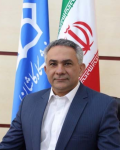| نویسندگان | Sa’id Golabi & Mohammad Reza Vakil & Behzad Amirsalari |
|---|---|
| نشریه | Lasers in Manufacturing and Materials Processing |
| ارائه به نام دانشگاه | University of Kashan |
| ضریب تاثیر (IF) | 0.351 |
| نوع مقاله | Full Paper |
| تاریخ انتشار | 2019-09-13 |
| رتبه نشریه | ISI |
| نوع نشریه | چاپی |
| کشور محل چاپ | ایالات متحدهٔ امریکا |
| نمایه نشریه | Q2 |
چکیده مقاله
Laser shock peening (LSP) is an effective process utilized for surface enhancement of metal parts so that generating compressive residual stresses (RS) on the surface improves fatigue life of the material. The main affecting parameters on surface negative residual stress are laser power, laser beam size and shape, peening pitch and pattern. Varying these parameters alters the magnitude and depth of RS as well as the cost of LSP. An integrated method for simulation of optimum LSP process is presented in this paper, in which Particle Swarm Optimization (PSO) technique was employed utilizing Python coding in ABAQUS finite element environment to maximize the uniformity of compressive RS and minimize LSP cost on an Inconel 718 super-alloy specimen. The mentioned affecting parameters were selected as optimization parameters, and minimum acceptable amounts and depth of compressive RSs were two main design constraints. Simulation results were compared with previously published experimental ones, and optimum LSP variables were finally determined and presented for certain amount of design constraints. It was revealed that, relatively small circular laser beam, shot by square scanning pattern, leads to generate the most uniform RS with minimum LSP cost.
متن کامل مقاله
لینک دانلود فایل
